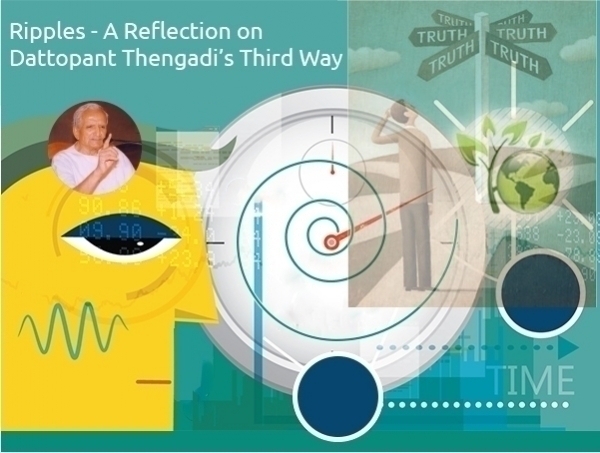Ripples A Reflection On Dattopant Thengadi's Third Way - Part 27
Dattopant expresses the view that even western parliamentary democracy too is not the "only possible form of good government".
Total Views |
I have been reflecting in my own way on Dattopant Thengadi Ji's Third Way. I present these small "ripples" that it has caused in my mind in a series. I am glad it has found its resonance in many thinking minds alike. I hope the readers have read the earlier article in the series before moving ahead.

Also Read: Ripples A Reflection On Dattopant Thengadi's Third Way - Part 26
The most important document of all the countries is the Constitution, no doubt. But it's place in every country differs in shades. In spite of not having a written British Constitution it's place is unparalleled. ( Dattopant gives a view of the place of constitutions in European and many other countries.)
We need to bridge Direct democracy and representative democracy to have benifits of both. Though the systems of Referendum, Plebiscite,Initiative and Recall are used to bridge, all these instruments failed to achieve the objective.
Many think the constitution of state is a machinery. Humanity doesn't get sufficient role in it. Yogi Aurobindo opined that 'ruling class or body may not represent the best mind of nation or its noblest aims or its instincts'. May be to prove the point, usually Politicians do not deal with many issues of importance with care.
Alexander solzhenitsyn (a Russian novelist,was an outspoken critic of communism and helped to raise global awareness of political repression in the Soviet Union (USSR)), doubted the utility of party system. He thought that may be' extra-party or no- party system would be of more help for the national development.)
Even M N Roy ( An Indian philosopher who moved away from orthodox Marxism to espouse the philosophy of radical humanism, was attempting to chart a third course between liberalism and communism.) discussed the concept of 'people committees'.
Of course our constitution is influenced by the 'Westminister model' forgetting that we need to approach the issue in our own way.
P Koteshwar Rao ,a constitutional expert, described our constitution as ' neither Indian nor Gandhian'. He further says that we ought to refer to our 'native soil' and 'ancient wisdom'. He did not see people's parcipation in framing it. Ideologies were imported , so thought of the need of revision of many parts. He stated that it is to be repealed and replaced. Obviously our national ethos is to be focused and all modern trends and needs to be considered.



